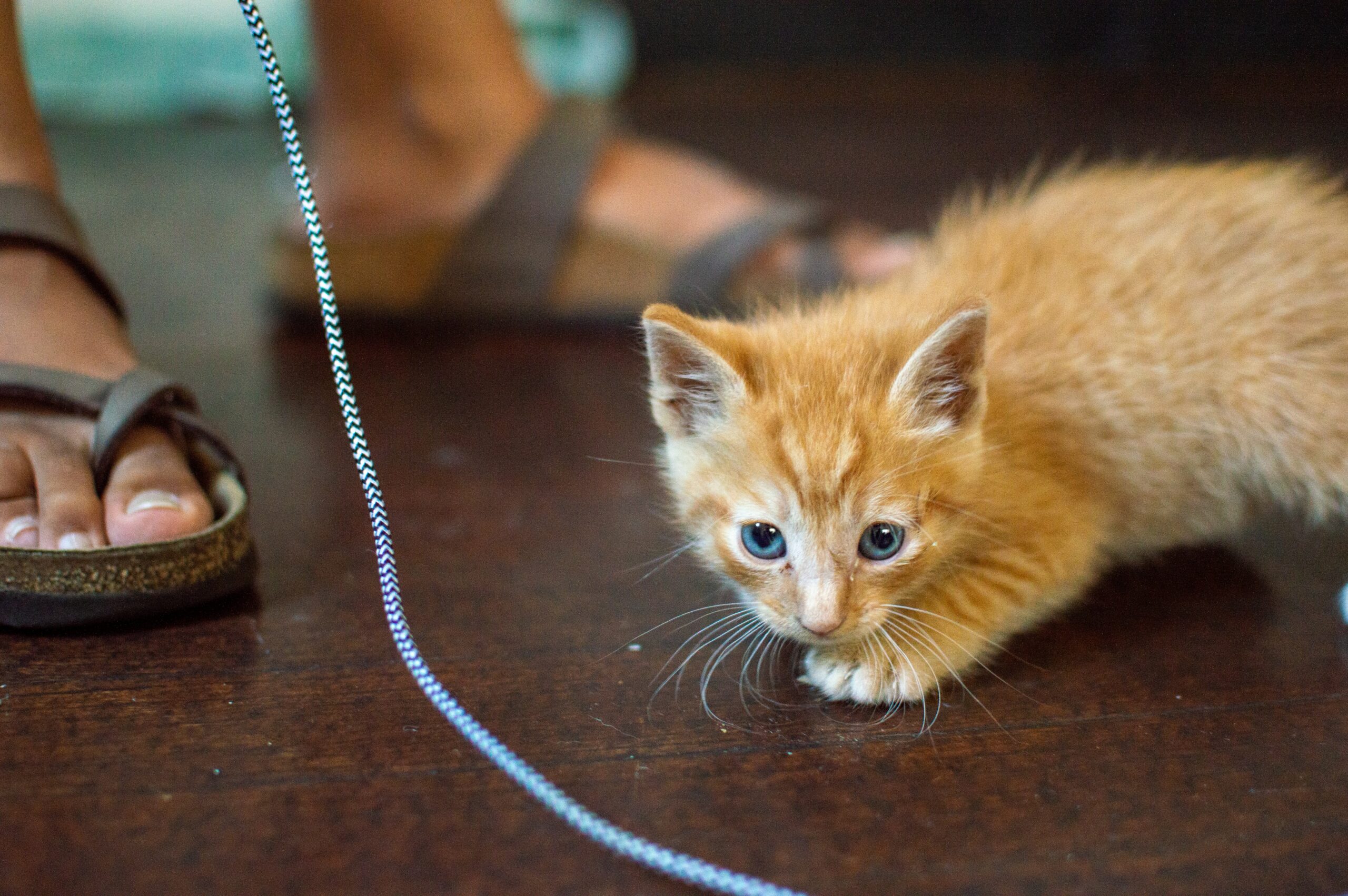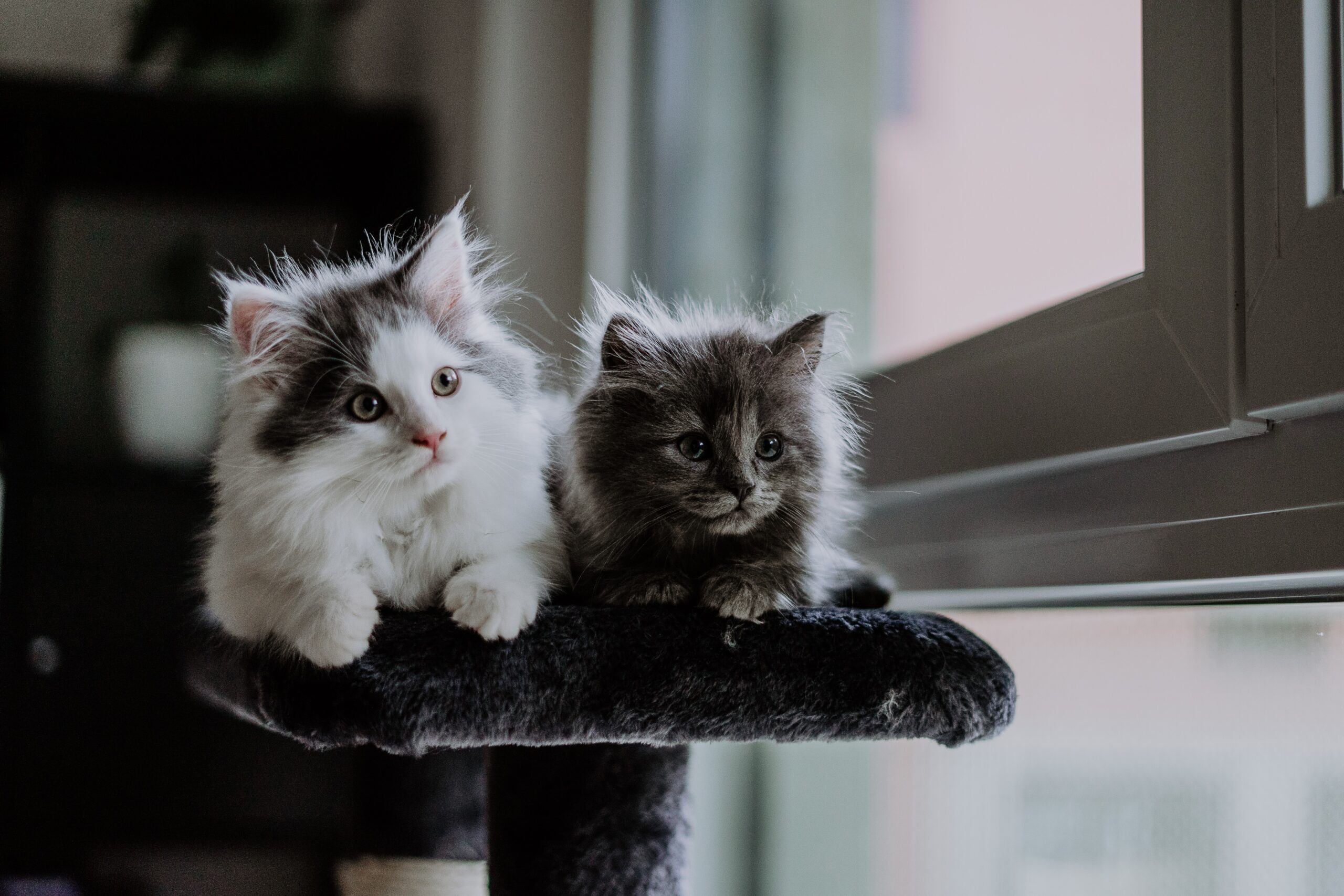Pets and Their People Blog
What You Need to Know About Kitten Socialization
Are you fostering kittens, or have kittens of your own? One of the most important gifts you can give them is effective socialization.
Socialization is about more than just introducing kittens to people. It’s about providing kittens with positive exposure to new stimuli: such as people and animals, environments, objects, and situations.
Before I discuss the right way to socialize, I want to point out that the main socialization window for kittens is from two to seven weeks of age, but it can extend up to 14 weeks. During this time, while kittens might initially react in fear to a new stimulus, they’ll also typically quickly overcome their fears. If you have a kitten older than 14 weeks, they can still be socialized, but it’ll take more time and patience.
Socializing Kittens to People, Pets and Places

When introducing kittens to people, quantity and quality are important considerations. Kittens should be handled several times a day by different types of people to encourage kittens to grow up into well-socialized adult cats. Ideally, the minimum of people would be five. Because kittens can discriminate between different types of handling, gentle handling techniques should be used. Rough handling during the socialization period can result in kittens becoming aggressive to people.
Studies have shown that kittens grow up more confident around cats when they’ve been socialized with other cats. Kittens raised together learn to play together, test each other’s boundaries, and figure out hierarchies. Kittens not socialized to other cats are more likely to exhibit behavioral distress when exposed to them. The same applies to other species.
Socialization also includes introducing kittens to new environments. You can start by providing new climbing areas and hiding spots and moving furniture around, so kittens learn to adapt to new environments in the safety of your home. When your kitten has been vaccinated, you might take her for walks with a leash and harness in your back yard or for car drives while in her carrier. If your kitten acts curious about the outdoors, you could eventually take your kitten to cat-friendly places in a stroller, pet transport backpack, or with a leash and harness.
Socializing Kittens to New Objects and Experiences
To introduce your kitten to new things, place an object at a distance from your kitten, then allow him to investigate the new object at his own pace. If kittens are curious about new objects, they will probably explore the object on their own. Otherwise, you can gradually move an object closer to your kitten while also praising your kitten. Fear Free® offers a printable bingo card with suggestions for ways to socialize kittens, such as: see someone carrying something in hand, hear a new sound in a controlled manner, walk on a new safe and study surface, explore a puzzle toy, experience a novel non-toxic and non-noxious scent, and taste different types of kitten food and treats.

The socialization period should also be the time when kittens begin to learn about the experiences they may encounter during their lives. A few critical ones include petting and brushing, clipping nails and cleaning teeth, having a towel placed over them and being handled, and accepting medication and visiting a vet. In her article on Kitten Socialization published by VetStream, Dr. Sarah Ellis advises that introduction to such equipment should begin with allowing the kitten to investigate the equipment while on the floor. Equipment can also be introduced during handling sessions to habituate kittens to these items, and during play to create a positive association.
At the beginning of my article, I said that socialization isn’t just about exposing kittens to people but also about providing kittens with positive exposure to new stimuli. Rather than letting your kittens encounter new things on their own, it’s important for you to be in control of their socialization. Introduce your kitten to people and other stimuli one at a time at a distance. Have a calm and gentle demeanor during introductions and always allow your kitten the option to not interact with stimuli. Pair new experiences with treats, toys, attention, and/or praise. Whenever possible, end on a positive note.
The best way for you to remain in control of the socialization training is to familiarize yourself with cat body language and respond to it. If your kitten starts to act anxious, immediately change the situation. Talk in a happy voice to your kitten, ask your kitten to do something comfortable, and/or lure them away from the situation with treats or toys. Then later in the day or even the week, try approaching the situation again but take baby steps in your approach. In between new stimuli, you might reassure your kitten with exposure to familiar and safe stimuli.
Caring for kittens can be a fun and rewarding experience. By giving them the gift of proper socialization, you’re increasing the chance that they’ll grow into friendly, confident, and adaptable adult cats.

About the Author
Allison Hunter-Frederick is a Cat Behavior Consultant, Trainer, and Educator. She is also the mother of three fur kids and several revolving foster cats, host mom to international students, and wife of a supportive husband. Through her business Allison Helps Cats LLC, she uses her knowledge of cats to help cat owners and animal shelters with their cat behavior needs. She and her husband have helped to socialize many kittens of various temperaments.
